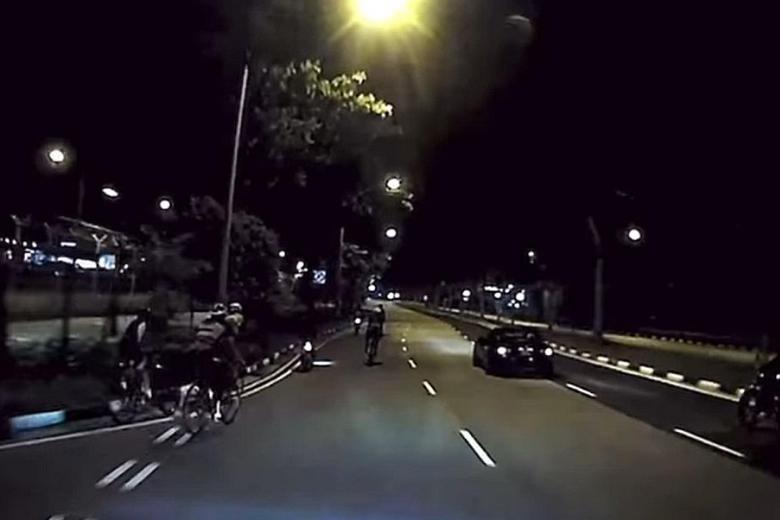- Joined
- Jun 11, 2017
- Messages
- 17,924
- Points
- 113

Actor Tay Ping Hui took to social media to vent his frustration at a group of cyclists who rode recklessly into a main road without looking and cut in front of his car, even though he had the right of way and had warned them by flashing his lights.
An advisory panel will conduct a review of existing regulations governing bicycles on the roads to improve the safety of both cyclists and motorists.
The review, which will take in feedback from the public, will include considerations of whether cyclists should be licensed and take theory tests.
Senior Minister of State for Transport Chee Hong Tat said this yesterday after meeting with members of the Active Mobility Advisory Panel.
The panel was set up in 2015 to study and discuss regulations in Singapore related to walking, cycling and the use of active mobility devices. Mr Chee said the Government is aware of concerns from both motorists and cyclists about cycling on the roads, hence the review, which is expected to take several months.
The announcement follows a spate of calls recently, including from actor Tay Ping Hui, for measures to put the brakes on errant cyclists.
He posted a video on Facebook taken from the dashboard of his car on April 1 showing a group of cyclists turning into a main road.
Even though his car had the right of way, the cyclists appear not to slow down and cut in front of him.
Irate, he took to social media to vent his frustration. His post, which included a call for all bicycles to be registered, garnered over 1,500 comments.
In a Facebook post a day later, Temasek Holdings chief executive Ho Ching also called for all bicycles and personal mobility devices to be registered.
Mr Chee said that cycling remains an important part of Singapore's green plan for transportation.
But, while it is a good thing that more people are taking up cycling, this should be done in a safe manner, he added.
Mr Chee noted that countries that have many cyclists, such as the Netherlands, do not require bicycles to be registered or cyclists to be licensed.
"It is a proposal that the panel can look at... while we do (the review), it's important that we do so in a balanced and fair manner, because we don't want to inadvertently end up discouraging cycling," he added.
The Land Transport Authority had previously studied licensing bicycles, concluding in 2016 that it would not be practical to implement such a scheme.
Chairman of the Government Parliamentary Committee for Transport Saktiandi Supaat told The New Paper last week that requiring cyclists to be licensed may not be the best approach to deal with errant cyclists.
He said: "We need to tread carefully on the issue of licensing bicycles... It might also dissuade people from cycling as getting such a licence may be an onerous process.
"Education and awareness of safety, along with rules, are better ways to promote a uniquely Singaporean safety culture."
Mr Saktiandi suggested that extra surveillance at typically congested areas where cyclists utilise stretches of roads could be useful.
Transport economist Walter Theseira said that any review of cycling regulations must be done holistically.
He told TNP: "Licensing and testing but not making insurance compulsory, for example, will do little to solve the practical problem of bicycles injuring pedestrians and pedestrians having no compensation.
"If you don't have sufficient enforcement or provide more alternatives for cyclists to major roads, you will also have the same problems as you do now."
Prof Theseira added that licensing cyclists as part of a comprehensive review can help to enforce a regulatory framework to penalise offences. This would help improve errant behaviour over time but should be introduced in a calibrated way.
He said: "Instead of getting every cyclist to get a licence, we can consider requiring only those who wish to go on the roads to get one."
Ms Joyce Leong, 65, founder of Joyriders, the largest amateur cycling club here, said making the basic theory test compulsory for cyclists could be one positive outcome of the review.
She added that any review of rules involving cycling on the roads should target both cyclists and motorists equally.
"Safety is everyone's responsibility," said Ms Leong.
"Motorists do not have the sole right of use of our roads, and they should be reminded of the rules that they need to follow when driving near cyclists. We should all learn to share the roads and learn to be kind and respect one another."


